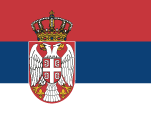n their recommendations and documents regarding the education of IT experts based on economic experiences and corporate requirements, every ten years the top global IT associations, such as IEEE, ACME and CEPIS, publish new standards and curricula that are recommended to educational institutions.
While developing the curriculum, ITS placed special emphasis on making sure current standards, tools and concepts are fully applied. An overview of ITS serves as proof of this fact. Taking into account constant dynamic changes in IT, it is crucial to modernize the curricula to reflect the development of contemporary computer sciences.
We have provided future students with program compatibility with the best universities in the world, as well as mobility through the ECTS system enabling them to freely switch schools and continue their education wherever they please.

Each subject in the curriculum entails a specific workload given in ECTS credits (the credits determine the student’s workload in mastering the study program). For undergraduate studies, the number of minimum credits is 180, while the maximum is 240.
The Bologna Declaration assesses the student workload and activity based on a 40-hour workweek. The syllabuses comprising a weekly class load of 18 to 20 hours (24 to 28 lessons) provide the student with enough time throughout the term to organize well and complete all projects, papers and extracurricular duties set by the professor.
This is why the curriculum entails several subjects in which students mostly work on practical projects. This is because often the lack of technical equipment and real projects, due to a nonexistent cooperation with economic entities, are the main reasons why students are unable to venture into everyday business activities. In addition, many schools have study programs in which the theoretical part is much more substantial than the practical one, which doesn’t comply with market needs and has a negative impact on students with regard to knowledge application.
The goal of the curriculum is to provide the students with top-quality applicable education, and prepare them for future job-related tasks. In addition to technical knowledge and skills, higher education institutions should provide the students with the practical knowledge they require. The task of these institutions is to prepare experts for diverse professions and encourage entrepreneurship.
The proposed curriculum has been designed so as to develop:
- Communication skills (verbal and written)
- Teamwork skills
- Interpersonal skills
- Motivation and initiative
- Strong work ethic
- Analytical skills
- Flexibility and adaptivity
- Computer skills
- Confidence
